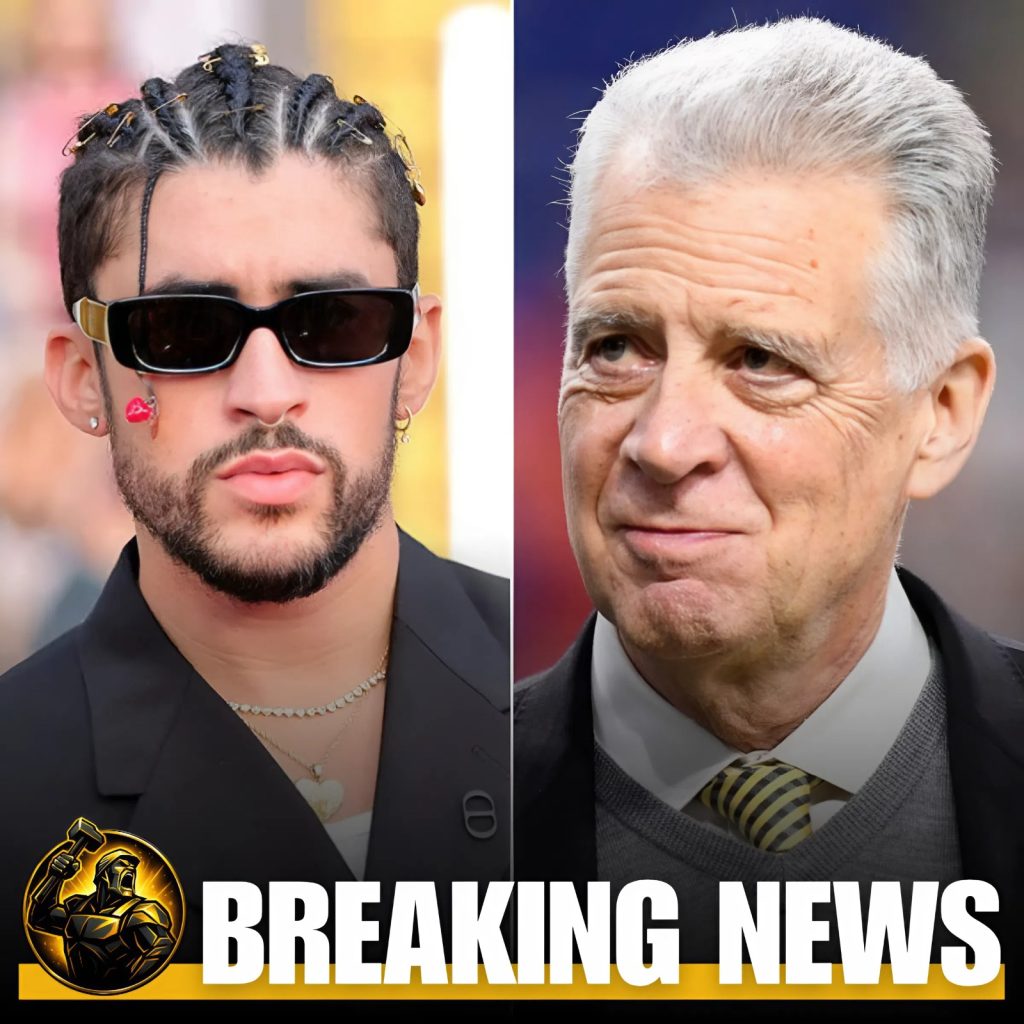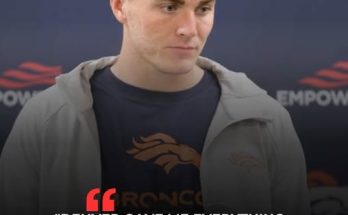
The announcement of Bad Bunny as the official headliner for the 2026 Super Bowl Halftime Show has sent shockwaves across the NFL community, igniting debates that stretch far beyond the football field. Fans have taken to social media, forums, and even live call-in shows to ask a controversial question: “Why Latin Trap and Reggaeton music, is it really suitable for the nature of the league?” The decision has divided audiences, with one side embracing the cultural diversity and global appeal that Bad Bunny brings, while the other questions whether his style truly represents the NFL’s traditions and its American football fanbase.

The controversy deepened when Pittsburgh Steelers CEO Art Rooney II addressed the issue in a statement that has now become the centerpiece of heated discussions. His words carried both symbolism and warning. “If the NFL does not change its choice of Bad Bunny, our entire Steelers team will…” Rooney paused deliberately, leaving the sentence open-ended but heavy with implication. This ambiguous declaration instantly caught fire, leading fans and analysts to speculate about what he meant. Was it a threat of boycott? Was it a message to the league office about solidarity within his team? Or was it simply a rhetorical gesture designed to grab the NFL’s attention? Whatever the intention, the Steelers’ top executive made sure his voice—and the concerns of a significant portion of fans—was heard loud and clear.

Bad Bunny, one of the biggest names in the music industry, has dominated charts globally with his reggaeton and Latin trap hits. He is celebrated for breaking cultural barriers and bringing Latin music into mainstream spaces previously untouched at such a scale. For his supporters, the NFL’s decision reflects a modern, inclusive vision that embraces diversity and resonates with younger generations. Many fans pointed out that the Super Bowl Halftime Show has historically featured a wide range of genres—from rock icons like The Rolling Stones to pop superstars like Beyoncé—so Latin trap and reggaeton should be welcomed as part of that evolving legacy.
However, the backlash cannot be ignored. Critics argue that Bad Bunny’s music style, lyrics, and stage persona may not align with the “family-oriented” image the NFL has long tried to cultivate. Traditionalists have gone further, suggesting that the halftime show should showcase more universally accepted genres like rock, pop, or country, which are deeply tied to the cultural roots of American football. Steelers fans, in particular, seem divided, with some celebrating Rooney’s willingness to challenge the league, while others view his statement as unnecessary interference in entertainment decisions.
What makes Rooney’s words especially powerful is the timing. The Steelers remain one of the most storied franchises in NFL history, with a fanbase that stretches across the globe. When the CEO of such a franchise speaks, it carries weight. His symbolic declaration has now forced the NFL into an uncomfortable spotlight, with league officials scrambling to address the growing concerns without appearing to backtrack on their commitment to diversity and inclusivity. The open-ended nature of Rooney’s statement has also created a sense of suspense: fans and commentators are left waiting for clarification, wondering just how far the Steelers would be willing to go to oppose Bad Bunny’s performance.

Meanwhile, Bad Bunny himself has not directly responded to the controversy, though his representatives have hinted that he views the opportunity as a historic moment not just for his career, but for Latin music as a whole. Supporters argue that bringing him to the Super Bowl stage could open doors for new audiences and elevate the NFL’s image globally, especially in Spanish-speaking markets. For them, the backlash represents resistance to change rather than genuine concerns about the sport’s identity.As the countdown to the 2026 Super Bowl begins, the debate shows no signs of slowing down. The NFL finds itself balancing tradition with innovation, trying to maintain its core fanbase while appealing to new demographics. Steelers CEO Art Rooney II has already ensured that his team’s voice is part of the conversation, whether the league welcomes it or not. And as fans continue to debate whether Latin trap and reggaeton are truly suitable for the nature of the league, one thing is clear: this halftime show announcement has become more than just about music—it has become a cultural flashpoint that will define how the NFL handles diversity, entertainment, and identity in the years ahead.



